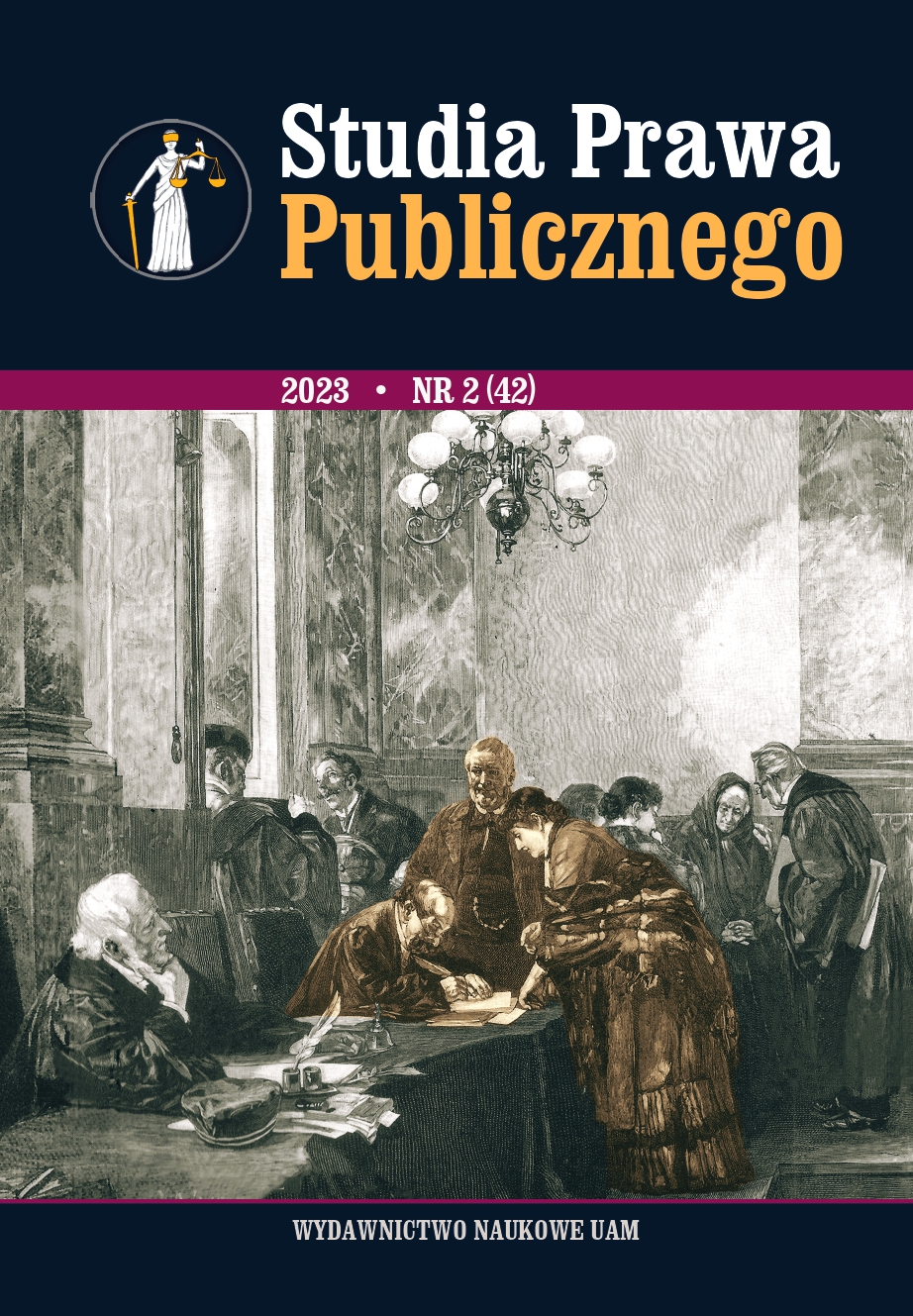Wojewoda w procesie politycznych
i administracyjnych przemian Polski Ludowej w latach 1944–1950
The voivode in the process of the political and administrative transformation of ‘People’s Poland’ in the years 1944–1950
Author(s): Krystyna WojtczakSubject(s): Public Administration, Public Law, Post-War period (1950 - 1989), Administrative Law
Published by: Uniwersytet im. Adama Mickiewicza w Poznaniu
Keywords: political and systemic transformations of the highest state authorities; construction of administration at the local level; legal position and role of the voivode in ‘People’s Poland’;
Summary/Abstract: The article considers the legal status of the voivode in post-war Poland ruined by the Nazi occupation, deprived of its own administrative apparatus (from 1939) and the construction of this position from scratch under new rules dictated by Moscow (from 1944). This periodisation was not matched by the ability to preserve Poland’s administrative apparatus. In occupied Poland, this function was not fulfilled by the highest Polish authorities in exile and their expatriate branches in the country. This opened the way for Moscow (strengthened by an amenable attitude from the Allies) to build the ‘People’s Poland’ (1) with an apparatus of supreme power (in the period before and after the enactment of the February Constitution) and (2) local, decentralised power (from 1944 based on national councils, and until 1950, also based in general administrative bodies – voivodes, starosts and local government administration). The author refers to both spheres of legal activity in the process of constructing this administrative apparatus. In chronological order, she discusses the basic legal acts enacted by the supreme authorities of the time. She focuses her attention primarily on acts directly concerning local administration, with particular emphasis on the institution of the voivode, which from 1944 was incorporated into the system of national councils, following the example of ‘people’s’ states. This analysis enables the conclusion to be drawn that the legal conditions at the time changed the legal status of the voivode, who was nominated by the government (and thus not the head of state). Appointing the voivode required an opinion from the competent national council. The council was empowered with the right of social control over the activities of the voivode. In practice, the influence of the voivodeship national council on the activities of the voivode was weak. The voivode was still the main element in the organisational system of the state’s local administrative apparatus as the representative of the government at the local level, the head of the general (composite) administration and the chairman of the executive body of the local government. The voivode’s competences excluded that of supervising local government bodies. In the years 1945–1949, a different status applied to the governors of the Recovered Territories.
Journal: Studia Prawa Publicznego
- Issue Year: 42/2023
- Issue No: 2
- Page Range: 9-40
- Page Count: 32
- Language: Polish

